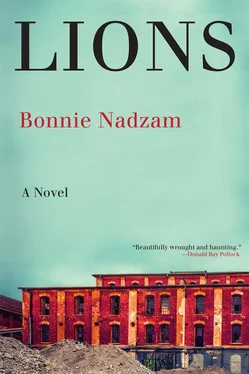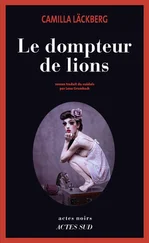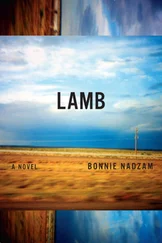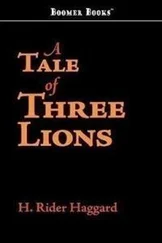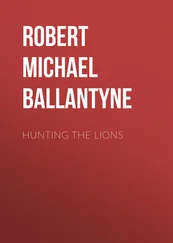When the man returned to the house he thanked them again. “Feels good to give your traveling companion something good to eat.” Then he ate four more eggs — eight eggs in that single meal.
“Been out in the snow and weather much?” John asked him.
“Some.”
“You have the things you need? Want a thermos? Got an extra in the shop.”
“A warm hat,” Georgianna said.
The man raised an open hand in their direction and shook his head. “Something I can do for you?”
Outside in the wind and last light he helped John move a pile of corrugated steel scavenged from a demolished farmhouse and its outbuildings twenty miles north, in Horses. They both wore heavy gloves and sidestepped through the new weeds until the pile was in the pole barn. They put the scrap angle iron and rectangular tubing on racks. The dog circled the men and pounced on field mice and loosed a skein of red-winged blackbirds that lifted up over the house and settled again behind it. Back in the kitchen the men washed their hands in the sink and a cold blast of wind blew the curtains in. Georgianna reached across the stranger and closed the window with a long, freckled arm. “Looks like you found us just in time,” she said. “Why don’t you bring your dog in?”
“In the house?”
“We’ll set you up on the cot in the bunkroom for the night,” John said. “It’s nothing fancy but it’s got a stove. We have another room in the house but it’s Gordon’s.”
“Our son,” Georgianna explained. “He’s out with his girl.”
The man glanced at her, then John. Their open faces, their warm, comfortable home.
“I think best,” he said, “if we keep moving.”
Georgianna gave him two peanut butter sandwiches, a bag of dried apple rings, and a can of tuna fish for the dog, and put it all with his clean clothes in a plastic bag.
He looked down at the coveralls.
“You keep them,” Georgianna said. “Might have a string of cool nights here. Those are sturdy.”
John gave the man a ten-dollar bill. By full dark he was walking down the frontage road straight toward town.
At the bar and in the diner, however, given what they learned later, they could hardly believe the man’s visit at the Walkers’ had been as civil as Chuck’s reports indicated it was.
Over the following few weeks, reports of what happened next rushed in whispers like wind through the grass. Edie Jacks, who lived in the house behind the alley, said the man left his dog on a little brown square of withered grass right by Boyd’s bar, and opened the door. From her kitchen window where she stood watching, the light inside the bar narrowed to a ribbon and went out.
That evening, Gordon Walker and Leigh Ransom were out in John’s truck. Gordon turned north, then west on a narrow county road, and drove straight over a vacant field. The old, blue Silverado bounced and he and Leigh swayed in the cab, but the MIG welder and toolbox were fixed firmly in the bed. In the distance before them, the dark red form of the empty sugar beet factory was set on the ragged edge of town, backed up against what had once been the westernmost edge of fertile tallgrass prairie, then beet fields, and was at last cast aside as hard ribbed ground grown wild with weeds and bristling forbs not even sheep would graze on.
Gordon and Leigh could hike to the factory on foot from their adjacent backyards, but they’d driven out to Burnsville this evening — the closest city, where their high school was — to buy butter burgers and french fries. In the back of the truck, in a cooler, they had a stash of canned beer from Boyd’s bar. Leigh ate the last of the fries with her bare feet braced against the passenger door, her head in Gordon’s lap so she could see the birds and bats darting above. She reached up with every other fry and popped it into Gordon’s mouth as he drove. With each one, she listed something they would have in the fall, in college, that they did not and could not have in Lions.
“People our age,” she said.
He glanced down at her. “I only have eyes for you.”
“Movie theater.”
“Overrated.”
“Real restaurants.”
“Overpriced.”
“Beautiful houses. Museums. Schools. Kayaking. Hiking. Snow on the mountains.”
Gordon tossed his hand, dismissing all of it. “Admit it. You love it here. Nowhere else will ever compare.”
She pinched him. “Stop. I know you want to go.”
He ran his fingertips along her jaw and rested his hand on her shoulder. “I do,” he said. “Of course I do.” He slowed the truck to a stop, turned off the engine, pulled her up, and kissed the sides of her face.
To get inside the factory they went not over the razor wire, but beneath a curled lip of chain-link that as children they’d disguised by tacking it back down with a railroad spike in a hole that took all day to pick out, the pale dirt so hard and dry it was no more fertile than moon rock. They say in its first years of being tilled there were nearly a hundred kinds of wheat growing in the county, and fifty kinds of oats, and flowering fields of green and white alfalfa of such prodigious harvests that at the World’s Fair grand prizes for both comb and strained alfalfa honey went to Lions. They say the nights were uniformly cool and the days were full of sunshine, that there was no such thing as mud or dust, only loamy black soil the consistency of dense chocolate cake, and root vegetables as big as your head. Some of the old-timers, however, might snort and tell you such stories don’t amount to much more than how a sense of loss can lead a person to imagine an overabundant past. If for a short time the story people told themselves about the place involved bushels of grain, melons big as wagon wheels, and ten-pound sugar beets, so much the worse for the ground that yielded them. Where once there had been wild onions and yams, buffalo, antelope, bears, and streams of fish, Lions’ earliest residents envisioned cattle, wheat, hog feed, expansive homes. When the former were decimated, the place became inhospitable, the sun hostile, the dirt shallow and as fine and dry as chaff. Their mistake was not in failing to see how difficult it would be to turn the place into a garden, but in failing to see that it had already been one when they arrived.
Sometimes when Leigh stepped inside the dim and rosy light of the empty factory, she felt something touch the back of her shoulder as if to warn her away. She was conscious of whispers and shadows moving across the wall, pricked by a nagging feeling not so much of alarm, or of fear, but of naked longing. The kind of feeling you get when you see the taillights of a single car disappearing over the curved ridge of earth in the last light of day. Wasn’t it pulling something of yourself along with it? There was a powerful spirit in the factory, she tried to tell Gordon. Something unsettled, a darkness that felt alive despite its stillness. He asked her to point to it. She slapped at him.
What had been the second-story floor had begun to buckle and crack, so that sun and moonlight splintered at odd angles in strange, bright patterns overhead. It was old flatiron construction, with massive beams of riveted steel. Broken slatted boards were nailed and rotting over long, narrow arched windows. On more than one occasion the feeling the place gave Leigh raised the hair on her forearms and scared her outside. Once Gordon not only laughed at her, he planted his feet, threw his head back, and asked whatever was there if it wouldn’t show its face. Come out of hiding.
“It will kill you,” she whispered from the doorway.
“If it’s so important,” he said, “ignoring it will kill you.”
Only one man’s story from the factory survived from the days before it finally shut down, if you could trust Marybeth Sharpe, now ninety-three years old and still living above her junk shop next to the bar. The man was from Rushville, Nebraska, or maybe it was Valentine or Alliance, Marybeth couldn’t quite recall, but some small town up there where she had cousins on her father’s side. The factory and fields employed scores of men and women to crawl on hands and knees from April to November thinning and blocking the rows to make space for big beets, to maximize teaspoons of sugar per vegetable — it was crippling work — but the Rushville man was lucky. He was neither a Mexican nor a German-Russian immigrant, so his job was inside.
Читать дальше
